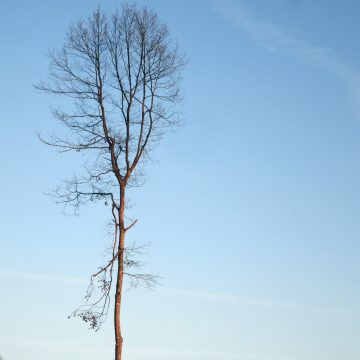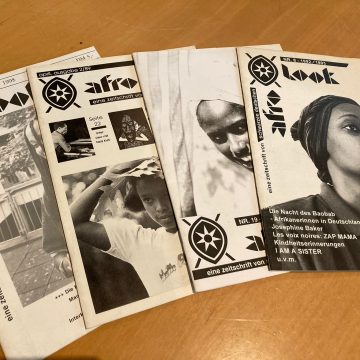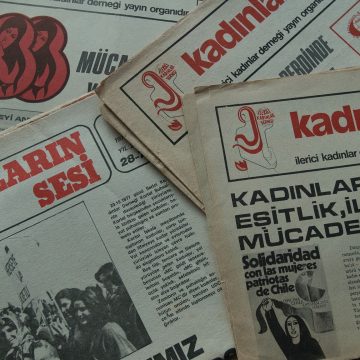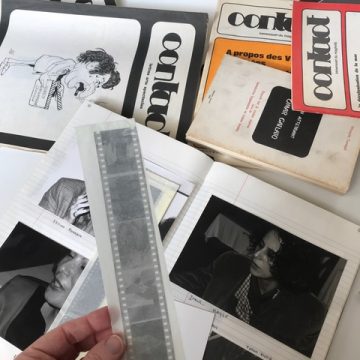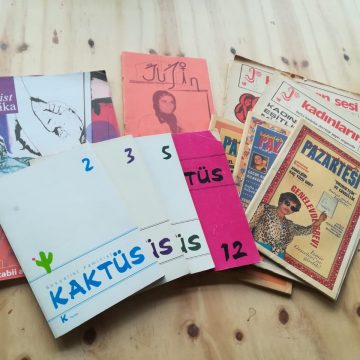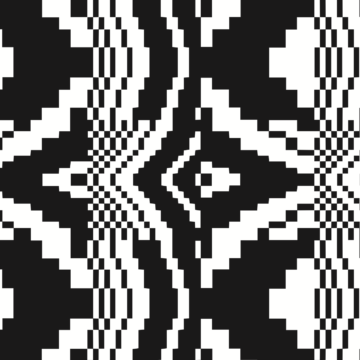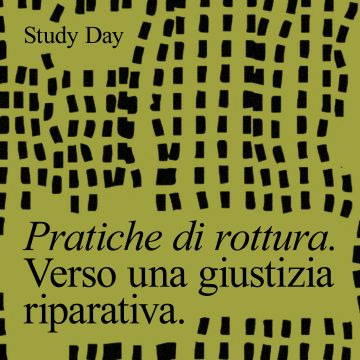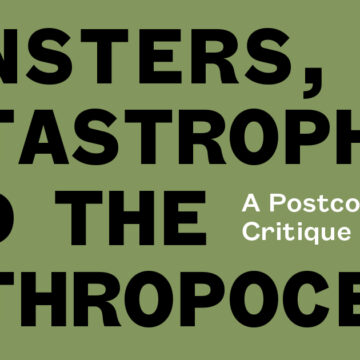The fourth Unpacking our library activation invites Algerian writer and feminist Wassyla Tamzali to experiment and explore strategies of collective readings and library activations in conversation with the 𝘐𝘯𝘵𝘪𝘭𝘢𝘬 research team composed by artist Touda Bouanani, curator Lea Morin and publisher Maya Ouabadi.
Author: (Miriam Gatt)
Contested Landscapes
18-19 December 2021
Contested Landscapes is dedicated to the often neglected rural space, its landscapes and its producers. Rural production acts in the complex fabric of human and non-human life, between state regulations and regional as well as global market structures. Issues of industrialization, biodiversity, climate change and sustainability shape everyday agricultural life. To this end, the event seeks an exchange between artists, rural producers, urbanists and city dwellers, since the city is hardly thinkable without rural production.
Unpacking our library, Activation #2
Ausgehend von den Praktiken der Community Bibliothek Each One Teach One (EOTO) e.V. in Berlin-Wedding und der legendären Afro-deutschen Magazins Afro-Look (1987-1999) werden Michael Götting, Autor, Bibliothekar und Kurator, und Ricky Reiser, Aktivistin, Redakteurin und autodidaktische Künstlerin, mit Strategien des kollektiven Lesens und Bibliotheksaktivierungen experimentieren.
Unpacking our library, Activation #1
Taking as a starting point the pages of the feminist newspaper Kadinlarin Sesi (Women’s Voice), Pınar Öğrenci, artist and filmmaker, and Övül Ö. Durmuşoğlu, curator, writer, and educator, explore strategies of collective reading and library activations. While reading the archival material, they make connec- tions between the experiences of former generations of women and today’s artistic and cultural practices.
Unpacking our library, Activation #4
The fourth Unpacking our library activation invites Algerian writer and feminist Wassyla Tamzali to experiment and explore strategies of collective readings and library activations in conversation with the 𝘐𝘯𝘵𝘪𝘭𝘢𝘬 research team composed by artist Touda Bouanani, curator Lea Morin and publisher Maya Ouabadi.
Unpacking our library, Activation #3
Feminist Politika/ Feminist Politics (2009-2015) was a regular feminist journal published by the Socialist Feminist Collective in Turkey. A women-only group, the collective targeted contemporary forms of patriarchy under its mutual interaction with capitalism by situating the category of women’s labour at the core of its analysis.
Publishing Practices
Publishing Practices is a yearly program committed to an expanded idea of publishing not confined to the production and dissemination of printed matters but open to a multi-sensorial reflection on other ways to know and exist.
How can we dismantle the way we know the world? What if the iterative power of knowledge as affirmed and reinforced by patriarchal, colonial and capitalist paradigms is replaced by publishing virtuality, its capacity to re-imagine the wor(l)d as “contingency and possibility” rather than “necessity and determinacy” (Denise Ferreira da Silva)? In which ways can publishing be activated as the ground for collective solidarity and inseparability, and participate in the undoing of fixed marginalities and boundaries?
Practices of rupture. Toward a reparative justice
21.11.2021
Archive fellow, artist Alessandra Ferrini, curates the first section of the study day with artistic interventions and discussion with invited speakers Lucrezia Cippitelli, Benjamina Efua Dadzie, and Jermay Michael Gabriel. Their session is followed by interventions by local, recently formed artist collectives Ambaradan think tank and Poly Marchantia. The study day closes with a screening of a video by Chihying Musquiqui and an intervention by Anawana Haloba.
Monsters, Catastrophes and the Anthropocene: A Postcolonial Critique
30.04.2021
Gaia Giuliani presenta il suo ultimo libro Monsters, Catastrophes and the Anthropocene: A Postcolonial Critique, (Routledge: London, 2020), in un percorso che esplora gli immaginari occidentali su disastri naturali, migrazioni di massa e terrorismo secondo una lettura postcoloniale, dalla quale emerge lo sguardo europeo su mostruosità e catastrofi.


